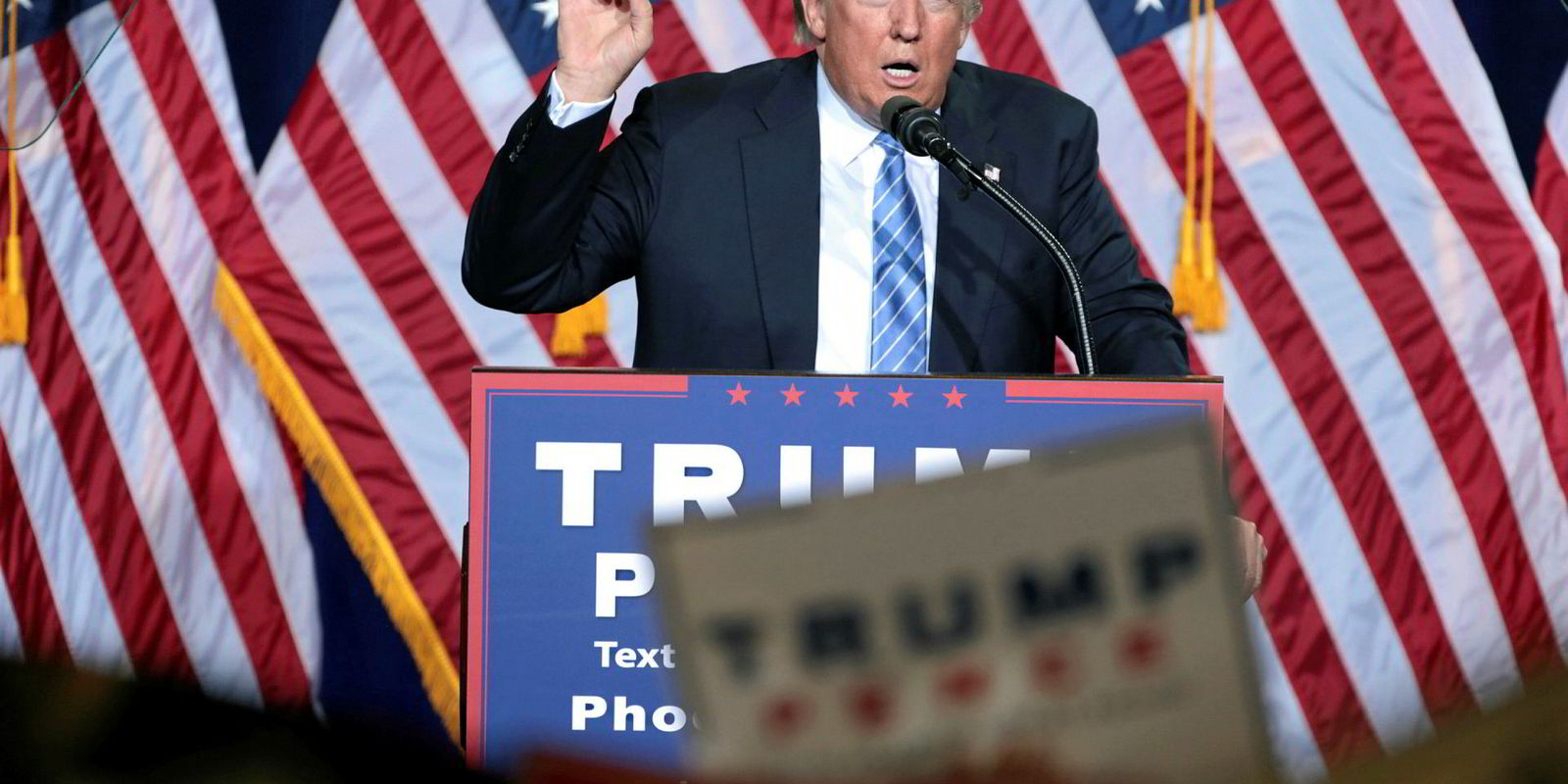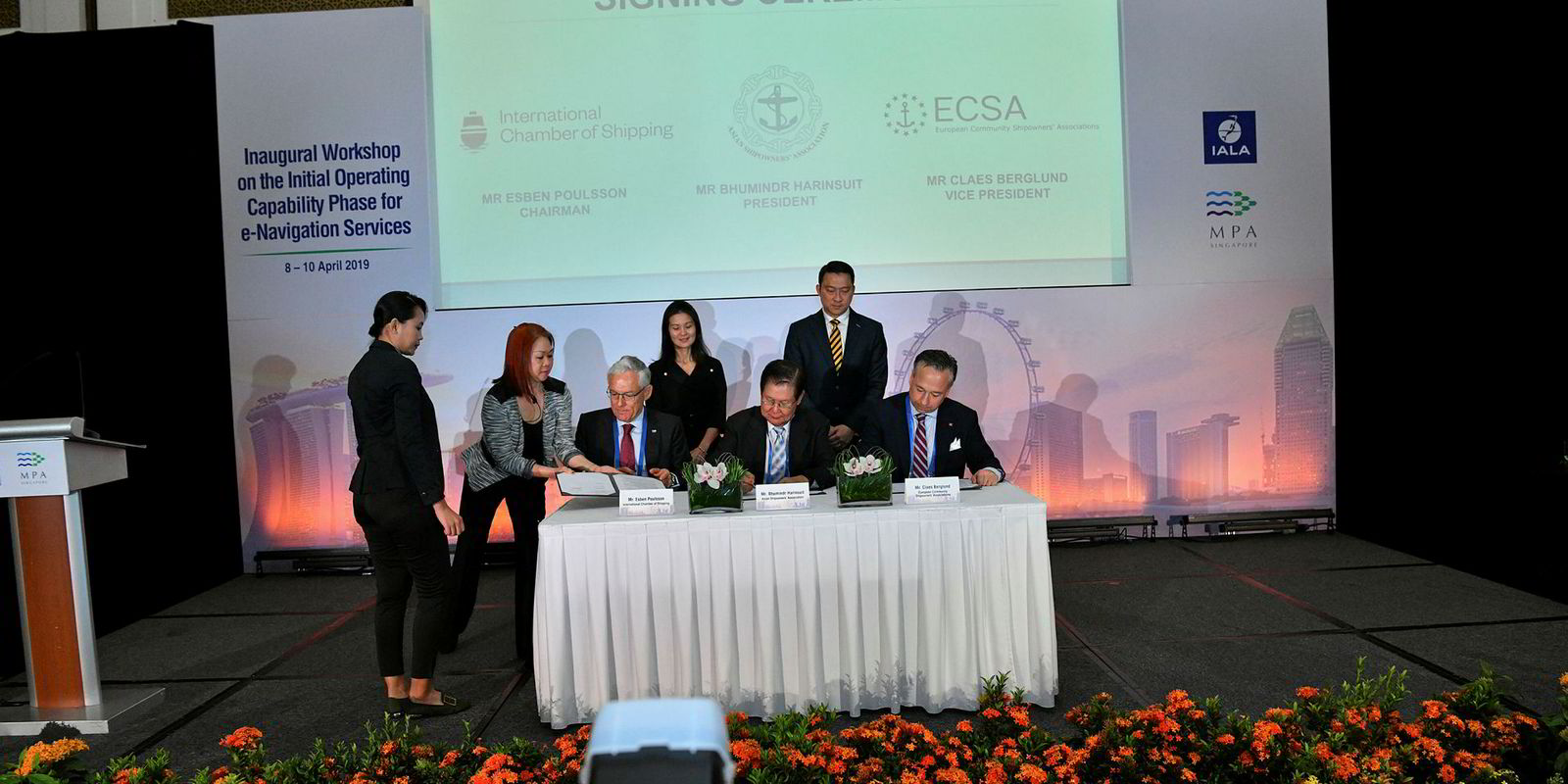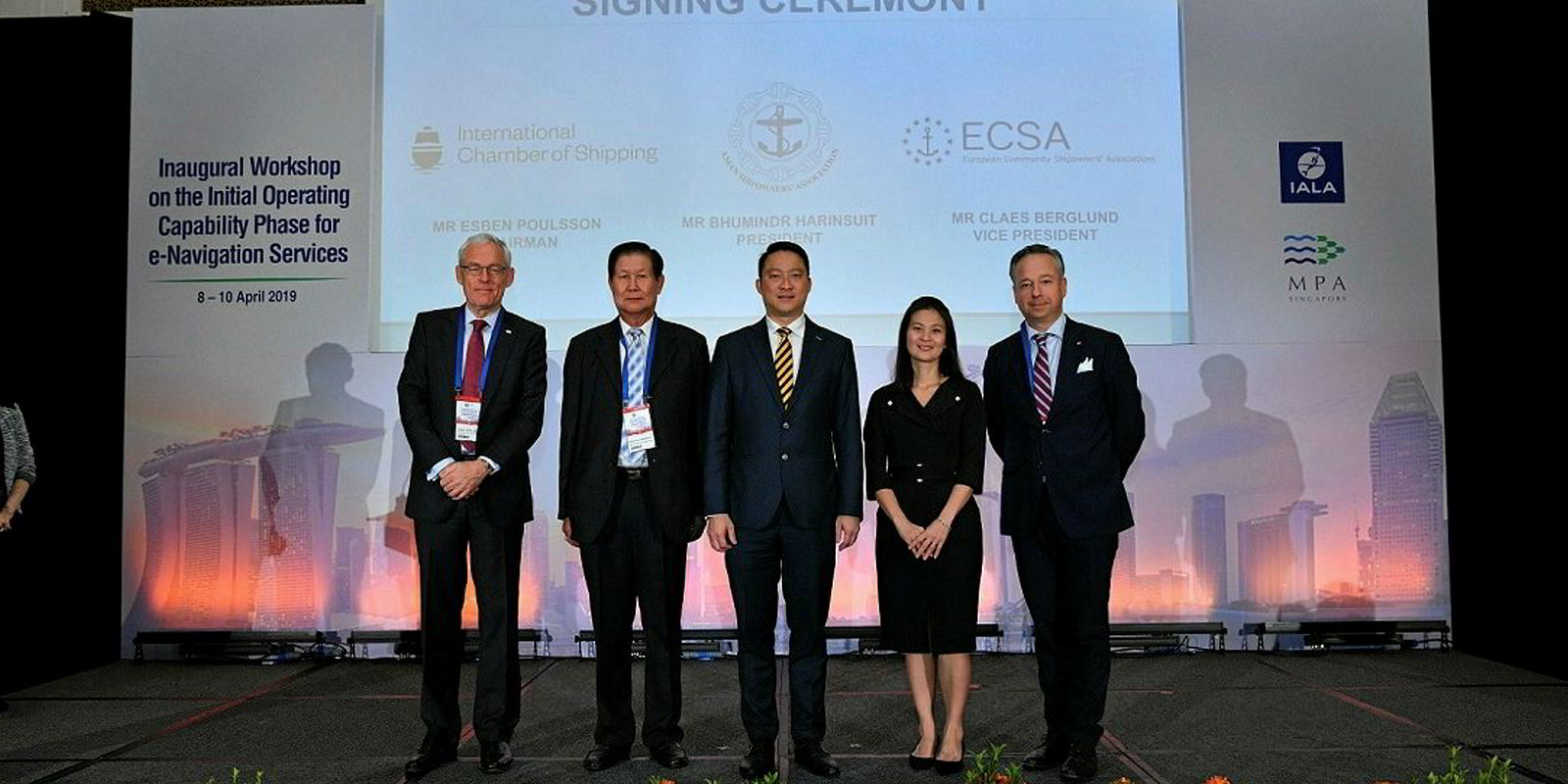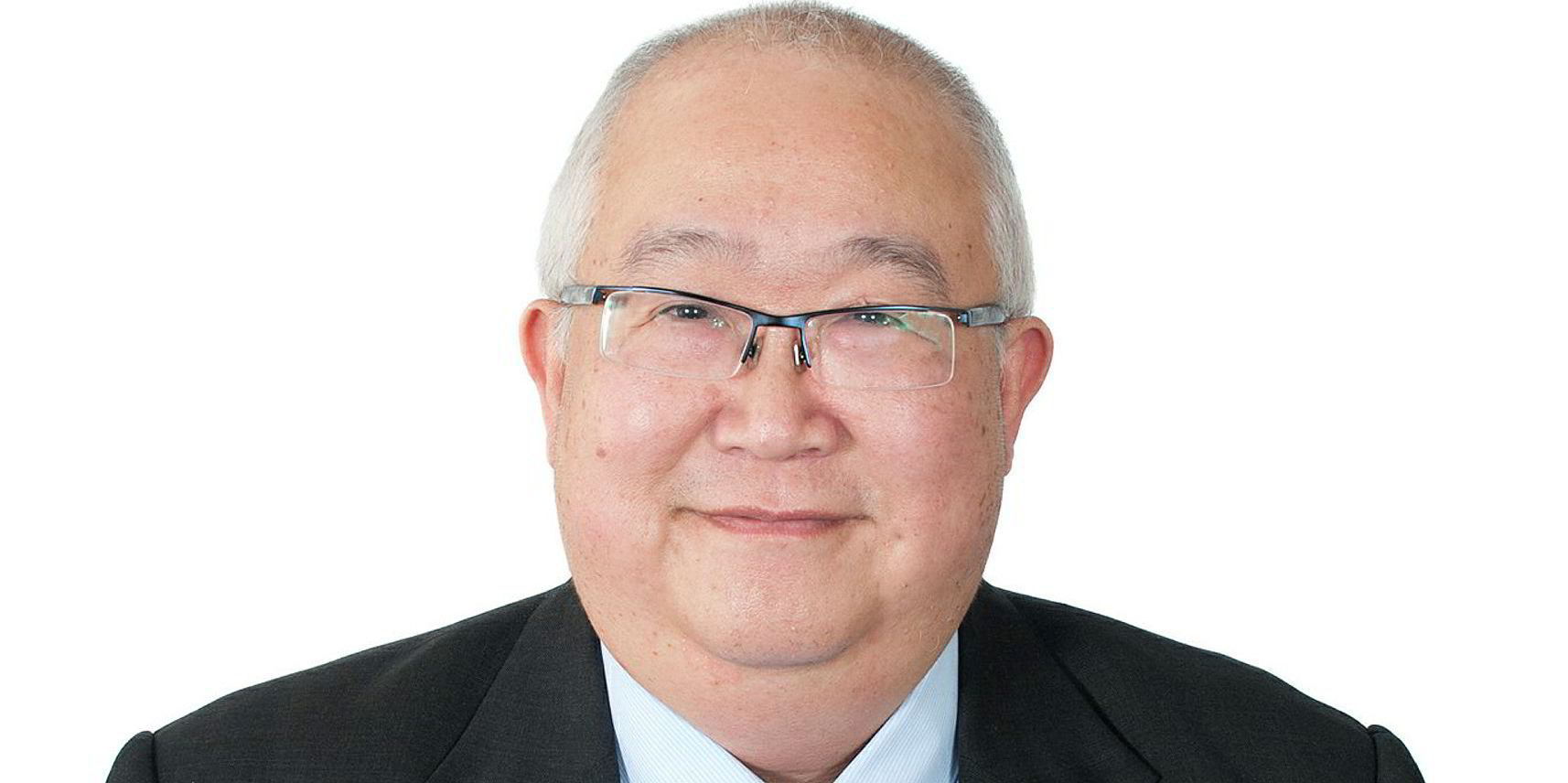A memorandum of understanding (MOU) signed this week by three of the largest shipowning groups makes a lot of sense in a fragmenting world. The International Chamber of Shipping (ICS), the Asian Shipowners’ Association (ASA) and the European Community Shipowners’ Association (ECSA) need to cooperate more closely.
One of the biggest threats to the free movement of shipowners is the growth of nationalism, protectionism and trade wars.
Within 24 hours of the memorandum being signed, US President Donald Trump unveiled $11bn-worth of threatened tariffs on European wine, cheese and aircraft.
Like the US spat with China, this will do nothing to help global shipping flows and undermines the scope for global governance of any kind.
Critics will say that MOUs such as the one signed in Singapore are just words on paper, like old Soviet five-year plans to build so many hundred thousand tractors that you know will never be delivered. They just make bureaucrats feel good when they stand together in the photographs that always accompany such events, some observers will moan.
Important symbols of change
But these declarations can also be important symbols of change and of determination to act as well as talk together.
It is not surprising to hear Esben Poulsson, the ICS chairman, say the trio will stand up for “a global industry requiring global rules”. He knows that those global rules are under assault like never before, not least because of a trend towards nationalism and protectionism.
It is also right to hear Poulsson stress the importance (and growing dominance) of Asian shipowners, particularly in China. But there is also a clear message to the European Union, which is singled out for mention, perhaps because of its strong stance on environmental regulation.

ECSA president Panagiotis Laskaridis has been a critic of the EU over a range of its maritime policies. He said at the MOU ceremony that working with the ASA “allows us to enhance our joint efforts to represent the best interests of shipowners, whether at bodies such as the IMO or when dealing with the EU institutions”.
So let us hope the trio uses this link-up in a constructive way — and not just to try to thwart some of the EU’s more progressive policies.
There is enough for shipowners of all stripes to worry about, such as the growing breakdown of international cooperation over trade.
And while Laskaridis and other shipowners may chafe at the way sulphur limits and other environmental rules are developing or being implemented, there is an acceptance at the IMO and EU that global rather than local governance is vital wherever possible.
Shipowners certainly will have no influence on what comes next between Trump and his Chinese counterpart, Xi Jinping, or in the new battle with Europe.
Yet already the maritime industry has been feeling the financial impact of American protectionism.
The International Monetary Fund (IMF) has twice cut its global growth forecasts since last October, blaming the trade war, the slowing Chinese economy and financial worries in emerging markets.
The IMF and World Bank spring meetings begin in Washington DC this Friday and a further cut in estimates is expected. But Christine Lagarde, the IMF managing director, says she does not see a recession in the short term.
Meanwhile, there is a glimmer of hope that the US-China trade stand-off is heading for calmer waters, with Washington halting the planned imposition of higher tariffs.
It is even possible that a more sensible Brexit strategy can be agreed to stop the UK crashing out of the EU with no trade deal this Friday. There have been growing demands for politicians to support a compromise based on the UK remaining inside a customs union with Europe.
But who would bank on sense prevailing, given the recent upheaval. The upsurge in populist nationalism in the US, UK, Italy, Brazil and even Japan will not be contained easily.
The liberal consensus on which globalisation was built has been fatally undermined by the benefits being confined to the few, not shared out among the many — especially in the developed world.
It is a good time for shipowners to stick together. But it must be about purpose, not just a pose.






